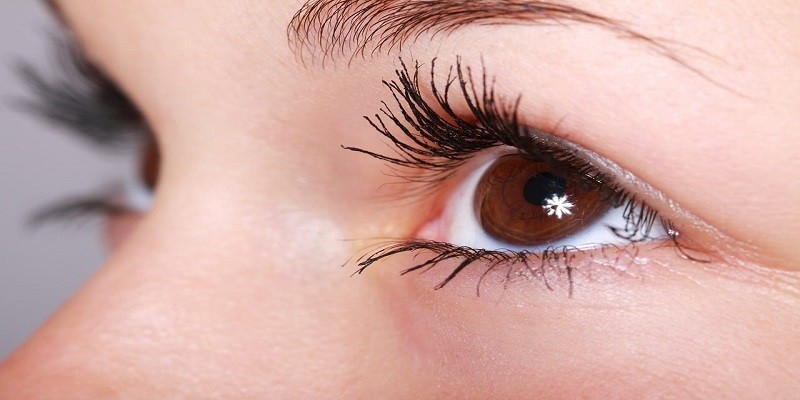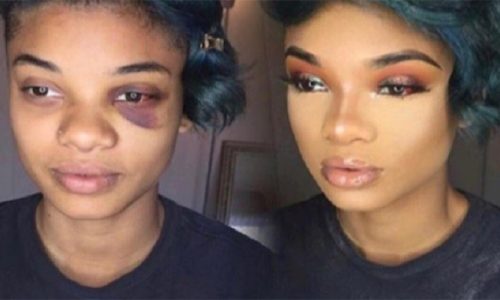Last Updated on June 18, 2025 by Jaclyn A. Neeley
After cataract surgery, you can typically wear eye makeup within a week. Cataract surgery is a common procedure that involves removing the cloudy lens of the eye and replacing it with an artificial one.
It is a relatively safe and straightforward procedure, but it does require some aftercare. One question that many patients have is when they can start wearing eye makeup again after cataract surgery. While the answer can vary depending on the individual case and the surgeon’s instructions, in general, you can start wearing eye makeup about a week after the surgery. However, it’s essential to follow your surgeon’s advice. In this article, we’ll discuss in more detail the risks of wearing makeup too soon after surgery, as well as tips for safely applying makeup once you’re in the clear.

Credit: harvardeye.com
Understanding Cataract Surgery And Eye Makeup
Cataract surgery is a common procedure used to remove cataracts, a condition that causes cloudy vision. During surgery, the surgeon removes the natural lens of the eye and replaces it with an artificial one. If you’re an avid makeup wearer, you may be wondering when it’s safe to start using eye makeup after cataract surgery.
In this blog post, we’ll explore the relationship between cataract surgery and eye makeup, and answer the question on every makeup lover’s mind.
What Is Cataract Surgery?
Cataract surgery is a procedure that removes a cloudy lens from the eye and replaces it with an artificial one. The artificial lens is usually made of plastic, silicone or acrylic and is designed to correct the vision of the patient.
The procedure is typically performed under local anesthesia and is considered to be safe and effective.
How Does Eye Makeup Affect The Eyes?
Eye makeup can cause irritation and infection if it gets into the eyes or around the incision site after cataract surgery.
- Bacteria can grow on makeup brushes and applicators, which can cause eye infections.
- Using old or expired makeup can also lead to infection.
- Eye makeup can irritate the eye if it gets into the eyes or around the incision site.
Why Is It Important To Wait Before Wearing Eye Makeup After Cataract Surgery?
It’s important to wait to wear eye makeup after cataract surgery because the eyes are still healing.
- There may be residual eye drops, ointments, and antibiotics in the eyes that can interfere with the makeup.
- Eye makeup can also increase the risk of infection in the eyes and cause irritation to the incision site.
- The eyes are still sensitive after surgery, and wearing eye makeup may be uncomfortable.
While there’s no exact number of days to wait before wearing eye makeup after cataract surgery, most surgeons recommend waiting at least one week to allow the eyes to heal and avoid the risk of infection.
Wearing eye makeup after cataract surgery can be detrimental to the ongoing healing process. It is therefore advisable to consult with your optometrist before resuming wearing makeup. Furthermore, it’s essential to avoid compromising your eye’s safety and health by refraining from the above-highlighted activities until your optometrist permits you to do so.
Post-Cataract Surgery Care
After cataract surgery, a lot of focus is given to the things that one should avoid doing to ensure full recovery. However, it is equally essential to know the correct steps to take to ensure a faster and more comfortable recovery process.
Proper post-cataract surgery care will go a long way in maintaining your eye health and allowing you to return to your regular activities, including wearing eye makeup. Below are some essential tips to consider.
How To Care For Your Eyes After Cataract Surgery:
- Use prescription eye drops as directed by your doctor.
- Rest your eyes as much as possible, especially in the first few days after surgery.
- Wear eye protection when going outside, such as sunglasses or a hat, to shield your eyes from the sun.
- Ensure that you don’t rub your eyes or touch them with unclean hands.
What To Avoid After Cataract Surgery:
- Do not drive until you have been cleared by your doctor.
- Avoid strenuous physical activities or lifting heavy objects for at least a week after surgery.
- Refrain from using eye makeup or getting your face wet for at least a week.
When Is It Safe To Start Wearing Eye Makeup Again?
- Wait until your ophthalmologist gives you the go-ahead, which is typically at least a week after surgery.
- Make sure that you use clean brushes and products to prevent infection.
- Avoid applying makeup too close to your eyes or on the incision site.
Remember, taking the proper care post-cataract surgery will speed up your recovery and maintain the health of your eyes. By following these simple tips, you can ensure that you will be wearing eye makeup again soon without any risk of further complications or delays in the recovery process.
Safe Eye Makeup Tips After Cataract Surgery
If you have recently undergone cataract surgery, you may be wondering when you can start using eye makeup again. While it’s tempting to reach for your favorite eyeshadows and mascaras, it’s important to take some precautions to avoid any complications or infections.
Here are some safe eye makeup tips after cataract surgery.
Best Practices For Applying Eye Makeup After Cataract Surgery
To ensure that your makeup application is safe and effective, follow these best practices:
- Start by washing your hands with soap and water.
- Avoid applying makeup directly onto your surgical incision site, which is located on the white part of your eye.
- Use a clean applicator every time you apply eye makeup.
- Avoid applying eyeliner to the inner rim of your eyelids, which can cause irritation or infection.
- Remove your eye makeup every night before bed to avoid buildup and potential infection.
What To Look For In Eye Makeup Products
It’s important to choose the right eye makeup products to avoid irritation and infection.
- Choose hypoallergenic and fragrance-free eye makeup products to avoid irritation.
- Be mindful of the expiration dates on your eye makeup and discard outdated products.
- Avoid sharing your eye makeup products with others to avoid infection transmission.
- Consider using natural or mineral-based makeup products to avoid chemicals that may cause an adverse reaction.
Expert Recommendations For Safe And Effective Eye Makeup Usage
Here are some expert recommendations for safe and effective eye makeup usage after cataract surgery:
- Wait at least a week after your surgery before applying any eye makeup to give your eyes enough time to heal.
- Consider using anti-inflammatory eye drops to reduce any swelling or redness before applying eye makeup.
- Use a magnifying mirror with good lighting to help you apply makeup more accurately and avoid poking yourself in the eye.
- Regularly visit your ophthalmologist after surgery to ensure that your eyes are healing properly and rule out any complications.
By adhering to these safe eye makeup tips after cataract surgery, you can enjoy wearing your favorite eye makeup products while also protecting your eyes’ health. Remember to avoid any practices that may cause irritation or infection, and always follow your doctor’s instructions.
Frequently Asked Questions On When Can I Wear Eye Makeup After Cataract Surgery?
How Long After Cataract Surgery Can I Start Wearing Eye Makeup?
It is recommended to avoid wearing eye makeup for at least a week after cataract surgery to minimize any risk of infection or irritation to the eye. It is best to check with your doctor before applying any products near your eyes.
Is It Safe To Use Eye Makeup After Cataract Surgery?
It’s best to wait at least two weeks after cataract surgery before using eye makeup. This gives your eyes ample time to heal properly. When you do start using eye makeup again, make sure to choose products that are non-allergenic, hypoallergenic, and as natural as possible.
Can Wearing Eye Makeup After Cataract Surgery Cause Any Complications?
Wearing eye makeup after cataract surgery can cause complications if it gets into the eye. It’s best to wait at least a week before applying makeup to the area around the eye and to avoid applying makeup directly on the eyelid.
Clean applicators thoroughly to avoid infection.
What Type Of Eye Makeup Is Recommended After Cataract Surgery?
It is recommended to avoid eye makeup for at least a week after cataract surgery. When it is time to resume makeup, use non-irritating and hypoallergenic products. Avoid applying eyeliner to the waterline and opt for eyeshadows with softer colors.
Are There Any Specific Instructions For Applying Eye Makeup After Cataract Surgery?
It is important to avoid touching your eyes after cataract surgery. Wait at least a week before applying any type of eye makeup, using only freshly purchased and clean products. Be gentle when removing and applying makeup, and avoid getting it inside the eye.
Can I Wear Contact Lenses Or False Eyelashes After Cataract Surgery?
It is recommended to avoid wearing contact lenses or false eyelashes immediately after cataract surgery. This is to prevent any potential infections or complications. It is best to consult with your ophthalmologist for their recommendation on when it is safe to wear them again.
Conclusion
Properly caring for your eyes after cataract surgery is crucial to avoid any complications, such as infection or further damage. As much as you may want to apply eye makeup right away, it’s important to wait until you have fully healed before doing so.
This usually takes about two to three weeks. Once your doctor gives the green light, make sure to use clean brushes and products to minimize the risk of infection. Additionally, avoid applying makeup on the incision area and take care not to get any products in your eyes.
By following these guidelines, you can safely enjoy the benefits of eye makeup without compromising your eye health. Remember to always consult with your doctor if you have any concerns or questions about your recovery process.







